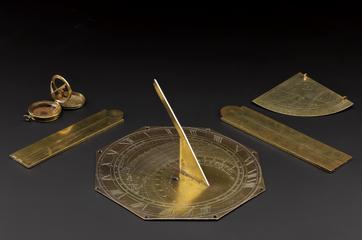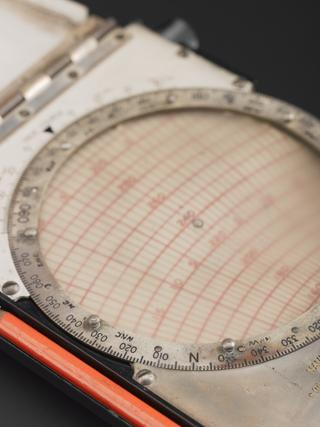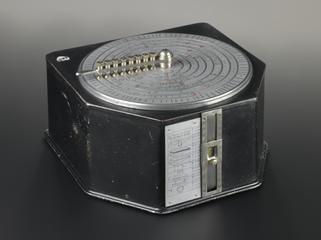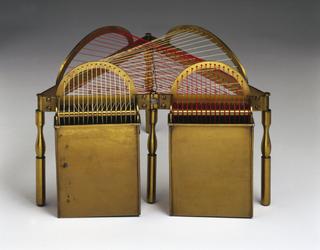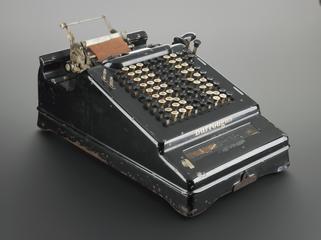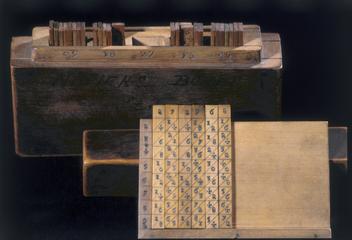




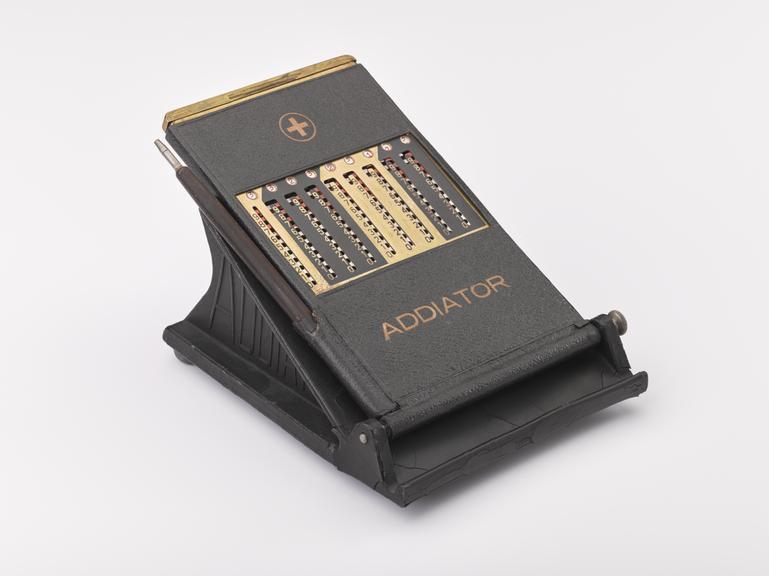
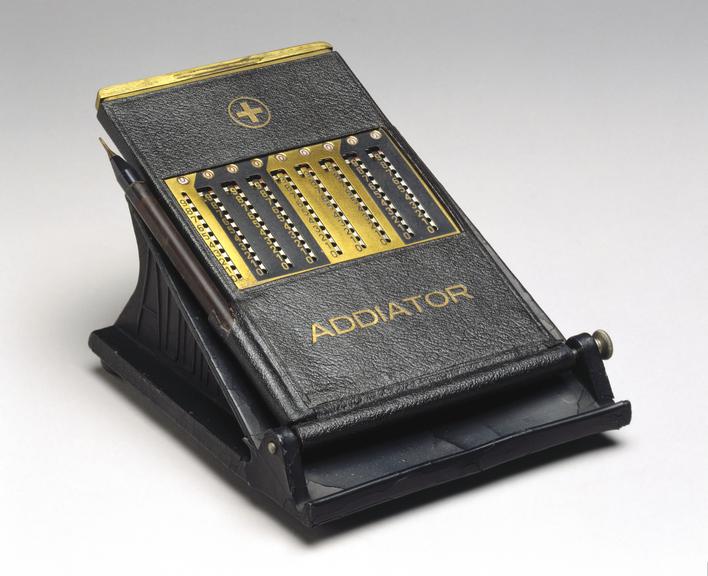
"Addiator" calculating apparatus, with stylus and pencil (in one piece); capacity 9 figures; decimal: mounted on metal stand
Before electronic calculators, pocket sized mechanical calculators were used to add or subtract. Addiators were made by the Addiator-Gesellshaft Company founded in 1920 by Carl Kübler and Otto Meuter in Berlin, Germany.
Germany and the two families of Kübler and Meuter involved in six competing brands became the major manufacturers of slide adders (as this type of calculator is also known) from 1920s to 1970s, when their production stopped abruptly after models were available in low prices worldwide. Their success made the Addiator name being used to describe all calculators of similar design.
After financial disagreements, Meuter left his partnership with Kübler and started his own company in 1928 introducing the ‘Produx’ model of calculators. The second World War and the split of West and East Germany at its end, disrupted both Kübler’s and Meuter’s companies and their production.
Margot Kübler, Carl’s daughter, rebuilt the Addiator business in Berlin after the war while his son Hans-Wolfgang set up in opposition, initially building identical machines under the name "Addimult". Lucie Meuter, Otto's ex-wife who had filed a patent application for a novel slide adder in 1924, continued to build the Produx machines in East Germany using the name "Record", while their son Klaus revived the Produx line in the West.
This early ‘Addiator’ has a chain mechanism, a stylus that helps the user to move the strip up and down to add or subtract and has a capacity for nine figures.
Details
- Category:
- Mathematics
- Object Number:
- 1924-542
- Materials:
- steel (metal), metal (unknown), brass (copper, zinc alloy), rubber (unidentified) and plastic (unidentified)
- Measurements:
-
Overall: 105 mm x 150 mm x 200 mm, 1.1 kg
- type:
- adding machine (stylus)
- credit:
- Addiator-Gesellschaft
